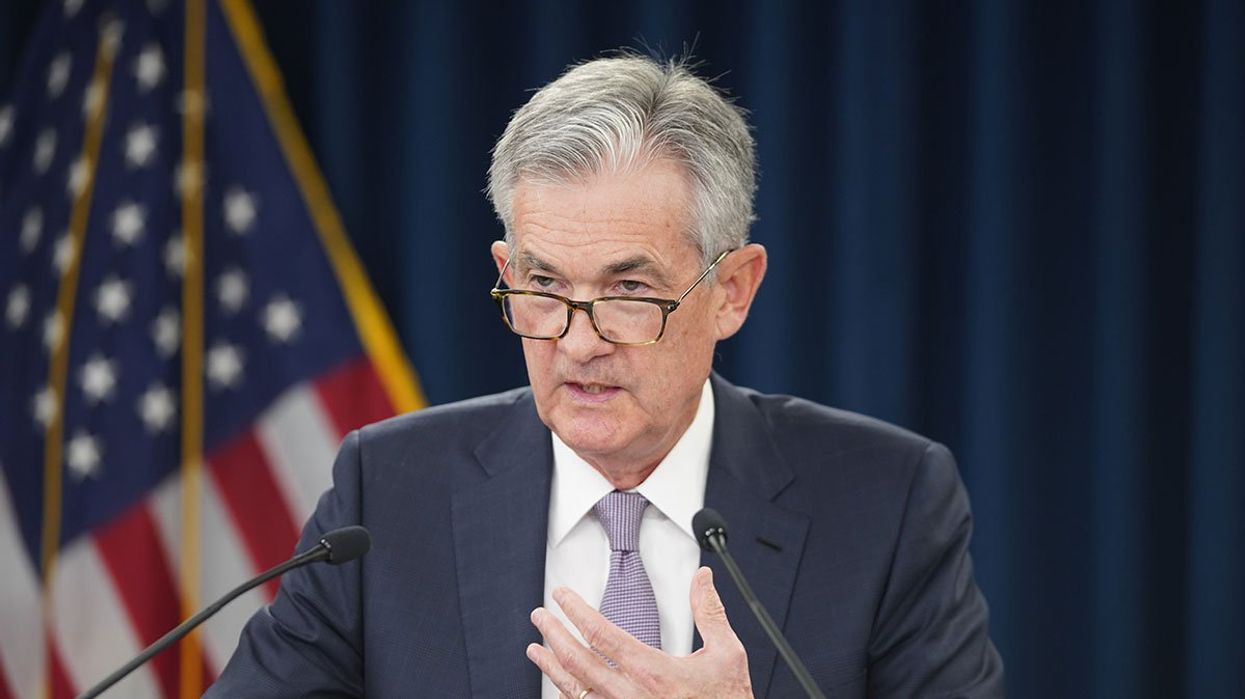'Shaken confidence': Stocks plummet again as global anxiety persists over SVB collapse

U.S. Federal Reserve Chairman Jerome Powell in 2019 (Creative Commons)
March 15, 2023 | 12:11PM ETEconomy
After the collapse of Silicon Valley Bank (SVB), President Joe Biden assured depositors that they would have full access to their funds as of Monday morning, March 13. And sure enough, depositors were protected.
Although SVB's woes created a lot of anxiety on Wall Street, the markets were rallying on March 14 — only to tumble again the next day. The rally, according to New York Times reporters Joe Rennison and Jason Karaian, was short-lived.
"On Wall Street, the S&P 500 fell 1.6 percent at the open of trading, reversing all of the previous day's gains," Rennison and Karaian report in an article published by the Times on March 15. "European markets were also hard hit, with stocks of many of the region's biggest banks falling sharply, as anxiety persists about the fallout from the collapse of Silicon Valley Bank and Signature Bank, which were seized by regulators after suffering devastating runs on deposits."
READ MORE: Silicon Valley Bank becomes 'largest bank' to collapse 'since 2008' financial catastrophe: report
"Bank run" is a term that investors never like to hear, as those words bring back memories of the Wall Street crash of September 2008 and the Great Recession — which was the worst financial crisis since the 1929 crash and the Great Depression of the 1930s. The Great Recession was not as brutal as the Great Depression, but it was brutal enough and gave President Barack Obama a lot to deal with in the late 2000s and early 2010s.
Rennison and Karaian report that the "catalyst" for the financial "turmoil" of Wednesday morning, March 15 "appeared to be Credit Suisse, the mistake-prone Swiss bank that has struggled for years to turn around its fortunes." Credit Suisse and other European banks, according to the Times journalists, had "little exposure" to either SVB or Signature. Nonetheless, S&P Global Ratings warned that "SVB's failure has shaken confidence."
According to Associated Press (AP) reporting on March 15, the "heaviest losses" of the morning "were focused on smaller and mid-size banks."
"First Republic Bank sank 7.7 percent a day after soaring 27 percent, AP's Stan Choe reports," AP reports. "Huntington Bancshares dropped 5.7 percent. Larger banks weren't hit as hard but still fell. JPMorgan Chase slid 3.6 percent…. Some of this week's wildest action has been in the bond market, where traders are rushing to guess what all the chaos will mean for future Fed action."
CNN’s Krystal Hur, reporting on Wall Street's March 15 turbulence, notes that it remains to be seen how much the U.S. Federal Reserve will keep hiking interest rates. The Fed, under Chairman Jerome Powell, has been carrying out a series of interest rate hikes in the hope of taming inflation.
Hur observes, "U.S. retail sales fell 0.4 percent last month, showing that Americans cut back on spending in February after splurging the month before. Both data points suggest that the Fed is making headway in its fight against inflation. The CME FedWatch Tool showed that traders see a 58.3 percent probability of a quarter-point rate hike at the central bank’s meeting next week."
READ MORE: 'Moron': Twitter slams Charlie Kirk for suggesting Silicon Valley Bank crashed because of its 'DEI' efforts
Read the New York Times’ full report at this link (subscription required).